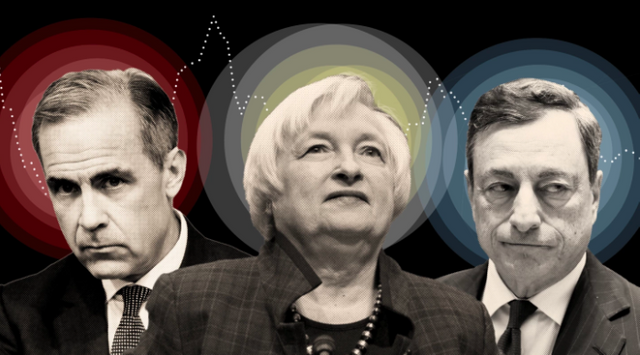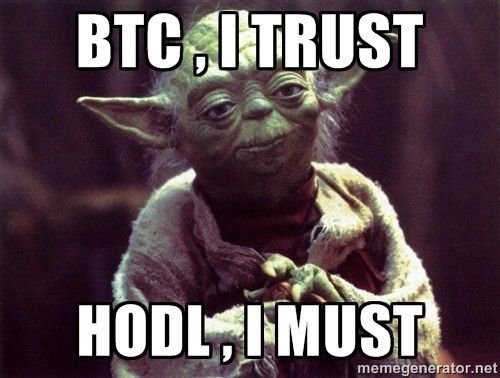The CME’s decision to list bitcoin futures triggered a torrent of analysis on bitcoin, futures prices, and arbitrage. The blogs came from every corner of the community, and even I couldn’t help but offer my 2c (here and here).
At this stage I think we’re all clear on the basics of arbitrage. I won’t cover old ground. Instead I’d like to talk about one component of the spot-futures arbitrage that hasn’t received much attention, yet will become increasingly important for bitcoin and crypto markets – interest rates.
Interest Rates
Interest rates are the cost of capital. As a borrower, the rate on the loan is the price you pay for access to that capital.
Interest rates can also be thought of as the opportunity cost of capital. Whatever you choose to do with your money, you know you can always put it in the bank and earn safe return. So if instead you decide to invest in a risky project, you’ll want the investment return to be higher than the interest rate you get from the bank. Otherwise, why take the risk?
In a cash and carry arbitrage the trader borrows to buy the underlying before selling the future. In a reverse cash and carry arbitrage the trader sells the underlying spot and puts the proceeds in a bank account until the future expires.
In each of these scenarios, the trader’s profits rise and fall with interest rates. The higher the interest rate, the lower the profit of the cash and carry arbitrage (the trader is paying interest on his borrowing) and the higher the profit of the reverse cash and carry (the trader is receiving interest income from saving). The opposite is true for lower rates.
The key point is that arbitrage trading crates a link between interest rates and bitcoin prices – in both spot and futures markets. The more money in the arbitrage trade, the stronger the link.
Leverage
Of course, interest rates can have a much more direct effect on bitcoin prices.
When interest rates fall, borrowing is cheaper and saving is less attractive. Potential investments have a lower hurdle return and the opportunity cost of putting your capital to work is lower too. So lower rates encourage people will borrow and invest. This increases demand and leads to higher prices. Econ 101.
This is true for ANY asset with a price, irregardless of the underlying technology, or any new paradigm it might create (or your philosophical disposition).
So yes, that includes bitcoin.
And once again we can see a causal relationship between interest rates and price. The trading strategy may be different, but the fundamentals are the same. Cheaper borrowing increases demand and therefore price. This is especially true for bitcoin as supply can’t adjust to meet demand.
The greater the leverage in the system – whether through arbitrage or directional trading – the stronger the effect of interest rates on the bitcoin price.
Leverage in The Bitcoin Market
And there is plenty of leverage going around!
I’m sure you’ve heard stories about people mortgaging their homes and betting it all on bitcoin. I admire their cojones! (Although I hope their confidence is based on more than just a belief in the sanctity of the technology.) Thankfully these cases are rare. For the sake of their families, the economy, and the health of the Bitcoin network, let’s hope it remains so.
At the other end of the leverage scale we have the millions of individuals who have opened brokerage accounts, with Coinbase being the most popular provider. Most brokerages don’t permit clients to fund their accounts with credit cards, but Coinbase does. It is inevitable then, that a decent chunk of the Coinbase’s volume has been financed with debt. These investors aren’t risking it all, but their combined exposure is a greater threat to the system than the big-balled mortgagers just described.
More recently, institutions have become a large presence in the market. We now have over 100 hedge funds controlling $2bn+ of crypto assets.
If you didn’t already know, hedge funds like leverage. A lot. Some of them can’t survive without it. Strategies like risk parity need access to cheap credit to provide clients to balance their Sharpe ratios. Other strategies need leverage to exploit mispricings in meaningful size – arbitrage for example.
And then there’s the Bitfinex billion-dollar question – or maybe we should say the billion-tether question. Bitfinex have issued 1 billion+ tethers that have been traded for bitcoin. The allegation is that these tethers are not fully backed by USD, and that the bitcoin price has been artificially juiced. It may even be a Ponzi scheme. If that’s true, it would mean more leverage in the system, and a painful correction if and when the scheme unravels.
If you are interested, you can follow the allegations here.
Oh The Irony!
All of that is to say that leverage is increasing in the bitcoin market. Leverage always and everywhere increases risk, and a significant part of this risk is a sensitivity to interest rates.
And therein lies a delicious irony. Ask yourself this: who controls interest rates?

That’s right, the evil central bankers and their minions in the financial sector! (Or are the central bankers the bankers’ minions?) In any case, bitcoin’s fate may be in the hands of the very people it was designed to usurp!!
A Perfect Storm
What happens if the Fed continues to raise interest rates, choking the supply of credit? Better yet, what if this happens during a prolonged bitcoin bear market?
The retail investors take what profits they can to pay down their debts, while hedge funds find their credit lines are more expensive and move their capital to the sidelines. The combination of selling and debt minimisation creates a vicious cycle. It’s called deleveraging, and it’s reeeaaally bad for asset prices.
And the big-balled mortgagers? I guess they’ll have to keep their spirits up by reading bitcoin maximalist twitter and #HODL memes.

(Although if they’re willing to bet it all on bitcoin I guess that’s what they’re doing anyway.)
The Fed Has Learned Its Lesson
Bubbles are undesirable, but bubbles financed by credit are particularly dangerous. The recession following the bursting of the internet bubble was short and shallow, and while the stock market crash of 1987 was painful for investors, the real economy barely noticed.
But when a leveraged bubble bursts in a $25 trillion market (the size of the housing market), you get a major financial crisis like 2008. You’d better believe the Fed will take pre-emptive action to prevent something like that happening again! Even Alan Greenspan – who doubted whether bubbles existed – has acknowledged as much.
So The Fed Is Gonna Burst The Bitcoin Bubble?
Well, no. I should apologise. That headline was deliberately polemical. I don’t seriously expect the Fed to target bitcoin any time soon. Rates are low and rising slowly. And in any case, barring some generic warnings, the Fed hasn’t shown much eagerness to interfere in the market.
But that could change.
As explained, the level of debt in the system is more pernicious than the rate paid for it. And that is what should concern bitcoin investors. The bigger bitcoin becomes and the more debt that is issued to finance it, the more attention it will receive from the Fed (and regulators in Japan, Korea, and China) and the greater the impulse for them to interfere.
Summary
The point of this piece is that leverage not only increases risk, it also creates a link between bitcoin and the financial sector.
The more that investors borrow to finance their bitcoin positions, the more risk they take, the more power they give the bankers, and the more attention bitcoin will receive from regulators.
Only a churlish investor would convince themselves that bitcoin is independent of the traditional financial system. In the long run, bitcoin, the blockchain, and cryptoassets may well revolutionise finance, but in the meantime, bitcoin will be integrated into the system and will increasingly behave like a traditional financial asset.
Congratulations @dermotdorgan! You have completed some achievement on Steemit and have been rewarded with new badge(s) :
Click on any badge to view your own Board of Honor on SteemitBoard.
For more information about SteemitBoard, click here
If you no longer want to receive notifications, reply to this comment with the word
STOPDownvoting a post can decrease pending rewards and make it less visible. Common reasons:
Submit
Congratulations @dermotdorgan! You have completed some achievement on Steemit and have been rewarded with new badge(s) :
Click on any badge to view your own Board of Honor on SteemitBoard.
For more information about SteemitBoard, click here
If you no longer want to receive notifications, reply to this comment with the word
STOPDownvoting a post can decrease pending rewards and make it less visible. Common reasons:
Submit